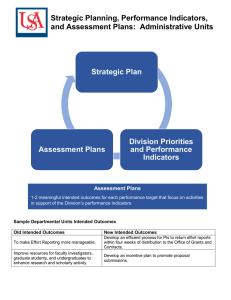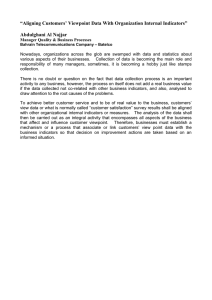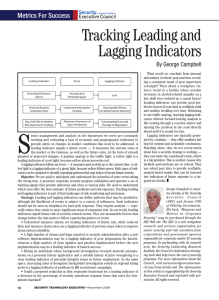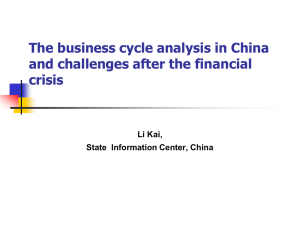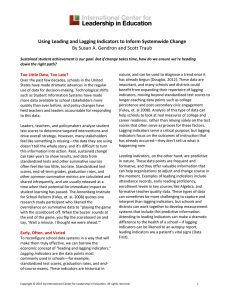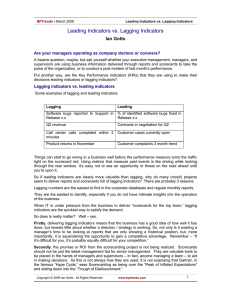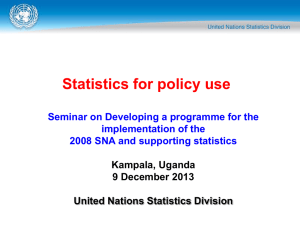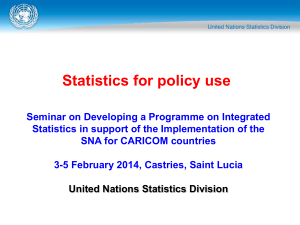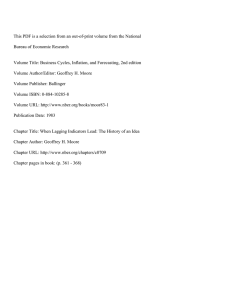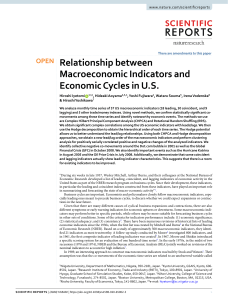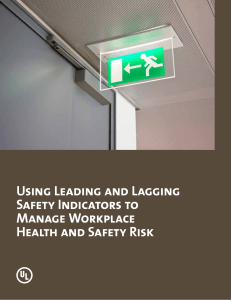Jim Lee FINA-5340 (Investment Portfolio Theory) presented to September 19, 2011
advertisement
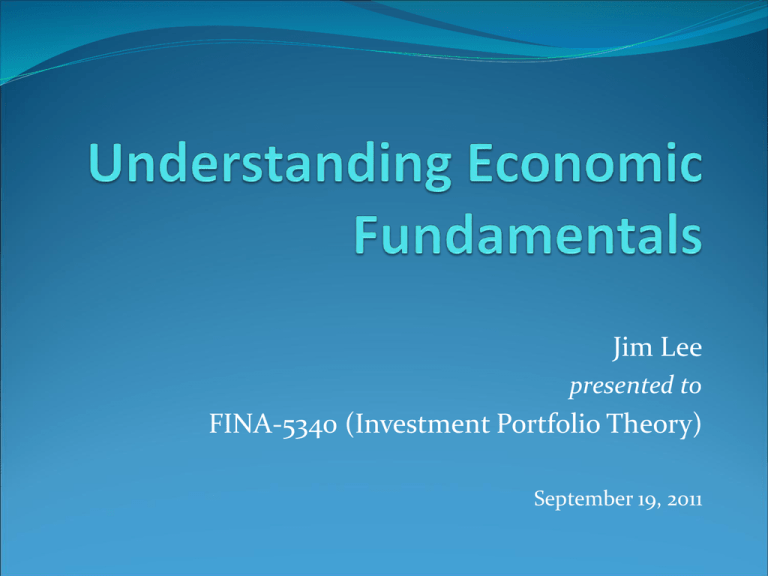
Jim Lee presented to FINA-5340 (Investment Portfolio Theory) September 19, 2011 Overview Why economic fundamentals and forecasts are important for investment What and where to look for information Brief survey of “how they do that” What should you (the investor) make of all the data Takeaway Why Economic Fundamentals and Forecasts are Important for Investment Most businesses are affected by the overall economic conditions in the economy (taken as given) And so are financial markets and financial instruments (stocks, bonds, loans etc.) A basic understanding of the current and future macroeconomic performance will help you make more informed investment decisions about companies and their obligations For speculative activities: Try technical trading! Where to look for data/information Investors should keep abreast of the current economy A typical day in the office should begin with a brief review of news on the economy (after a quick look at the “markets”) If you are a professional, you should already have subscriptions to news alerts from the business media: Financial Times Wall Street Journal Fortune/Bloomberg Updates from major financial institutions Or, get it for free… What to look for Not all “indicators” are created the same: Some are leading, some are lagging Markets react mostly to news releases (surprises) of leading indicators (unemployment claims, consumer confidence, manufacturers’ new orders, PPI) The Conference Board’s Index of Leading Indicators is the most popular outlook indicator How do they do that First ECON course gives you a comprehensive understanding of basic macroeconomic concepts (GDP, CPI, employment, etc) Forecasting Methods: Indicators (leading and lagging) Surveys of economists & professionals Structural Models (CBO, FRB) Time-series modeling Extrapolation ARIMA, ARCH/GARCH They are right almost 50% of the time What to look for (in a typical outlook presentation) Global economic conditions National economic conditions Economic indicators/statistics Fed watching Regional conditions Example: Dallas Fed indicators Developments in industries/sectors Example: Oil, housing, real estate Local conditions (market conditions) by experts What To Make of All the Data Perhaps nothing at all! The efficient market hypothesis implies that the markets will (almost) immediately respond to all publicly available information. … unless you see things that are different from the consensus, i.e., surprises. For day traders: Try to stay ahead of everyone else, rather than waiting to be informed. For Warren Buffett-type long-term investors : Trends are persistent, the hardest part is to spot the business cycle turning point Pop Quiz: What can you make of this? The Dow is highly correlated with GDP… What If I Choose to Ignore the Economy? “It’s the economy, stupid!”—a true story Thank y’aw !%*#
